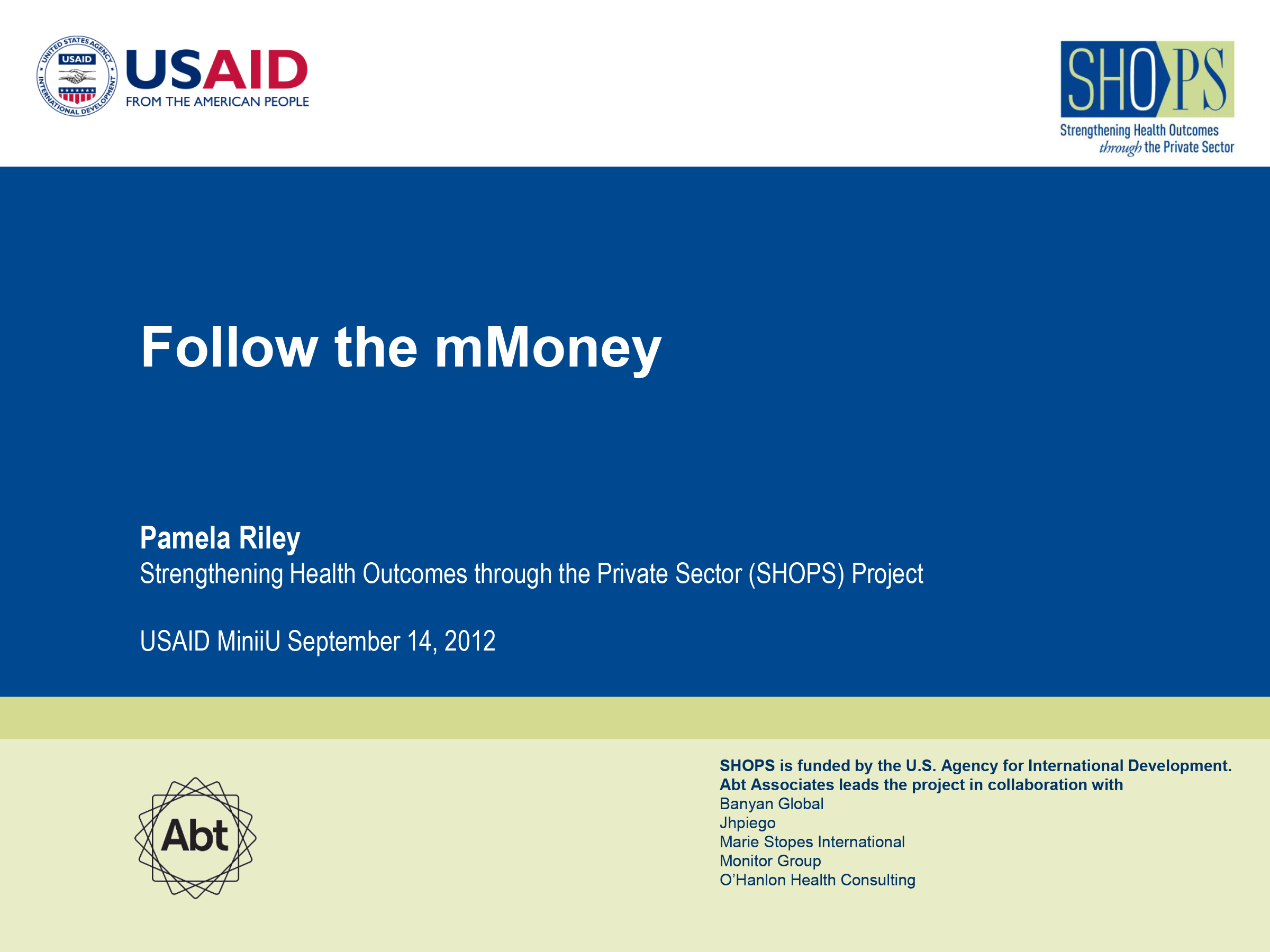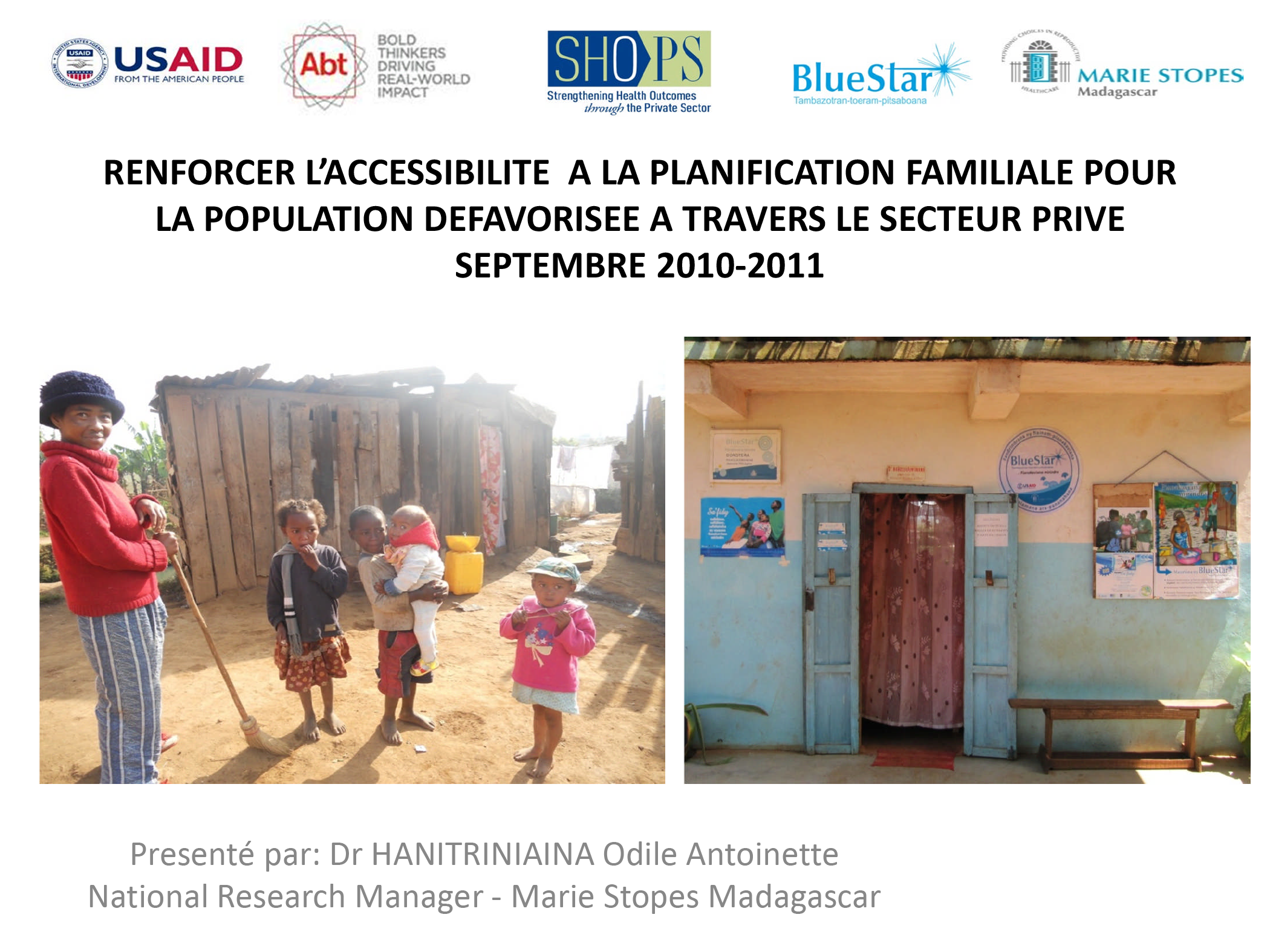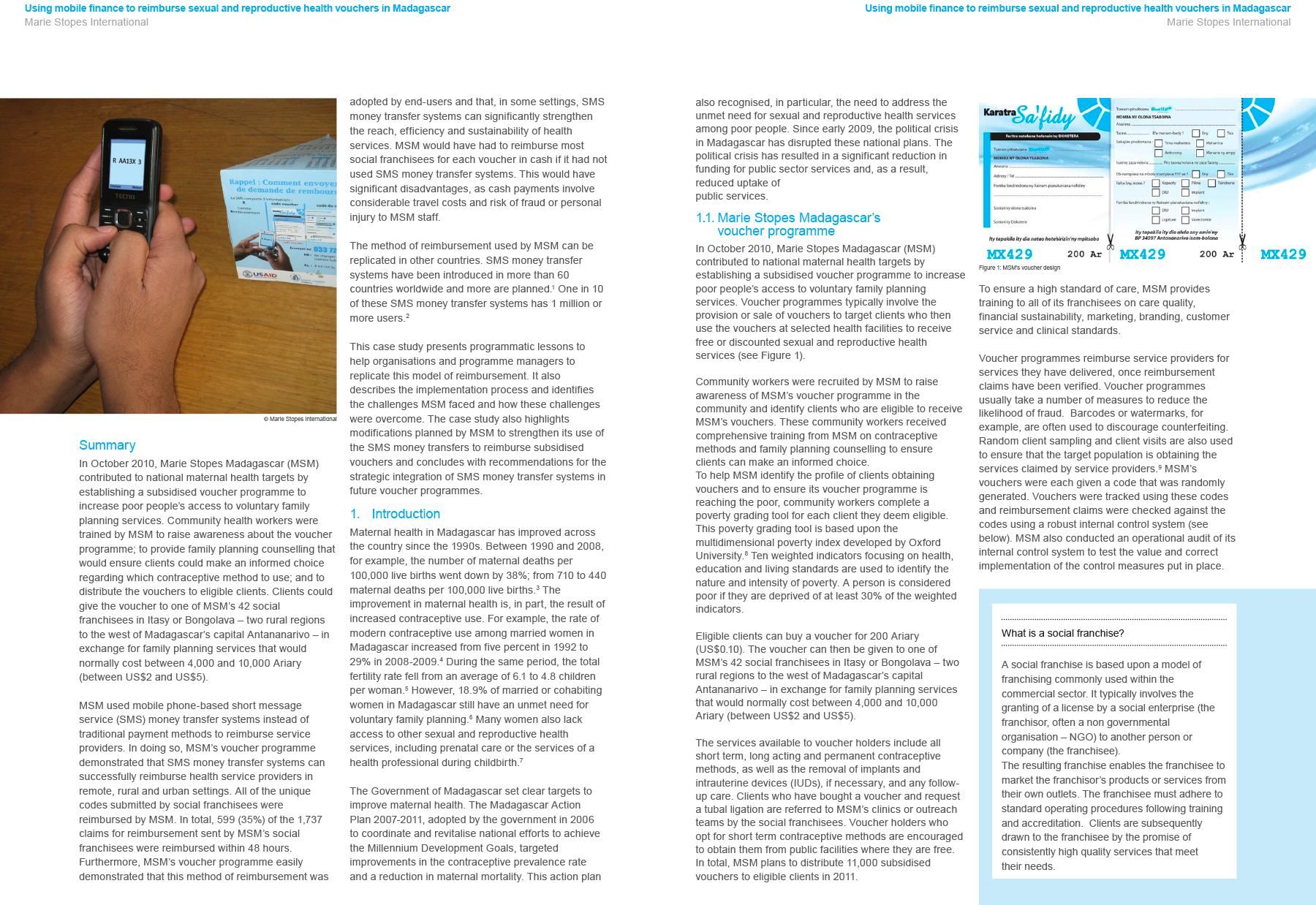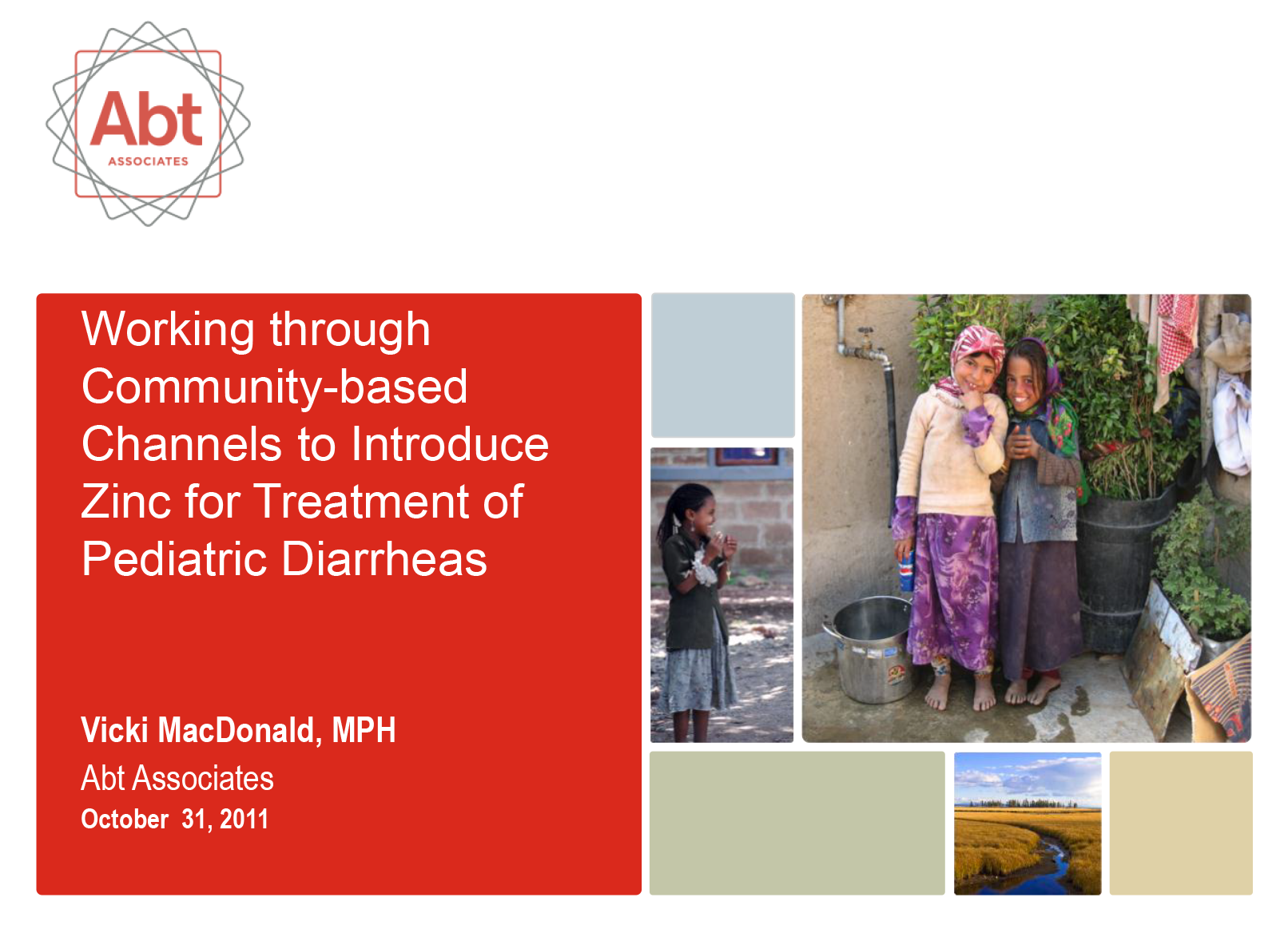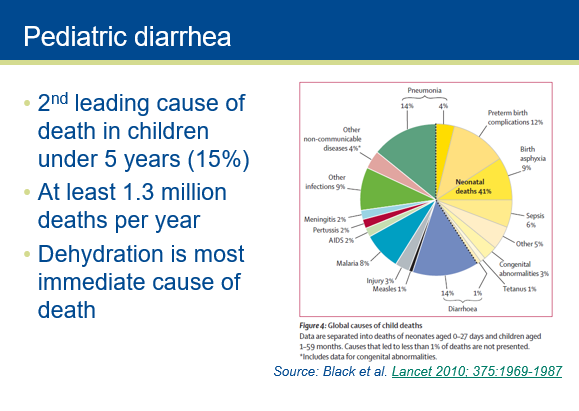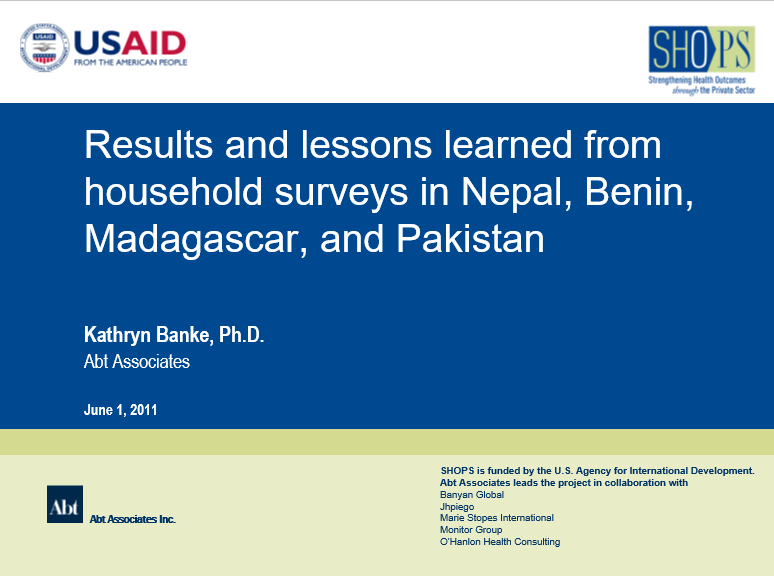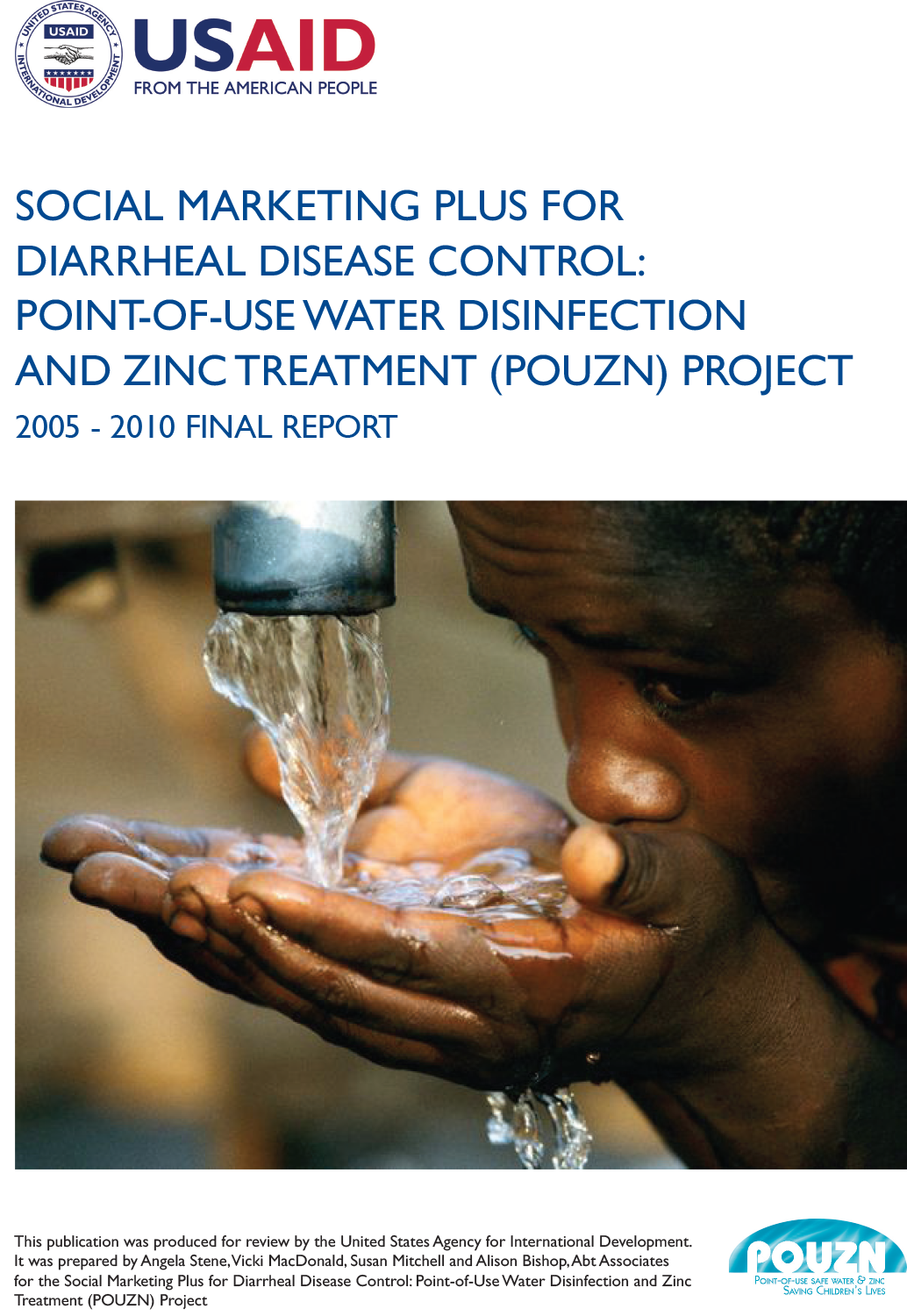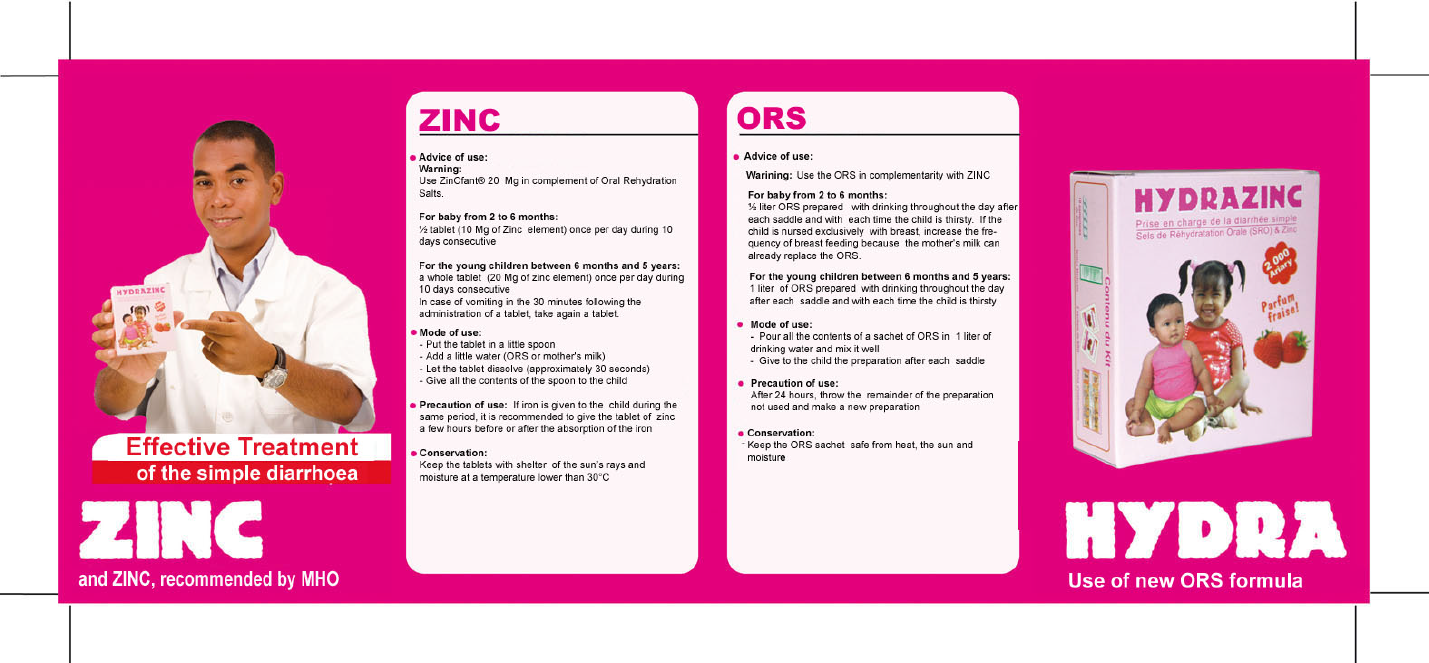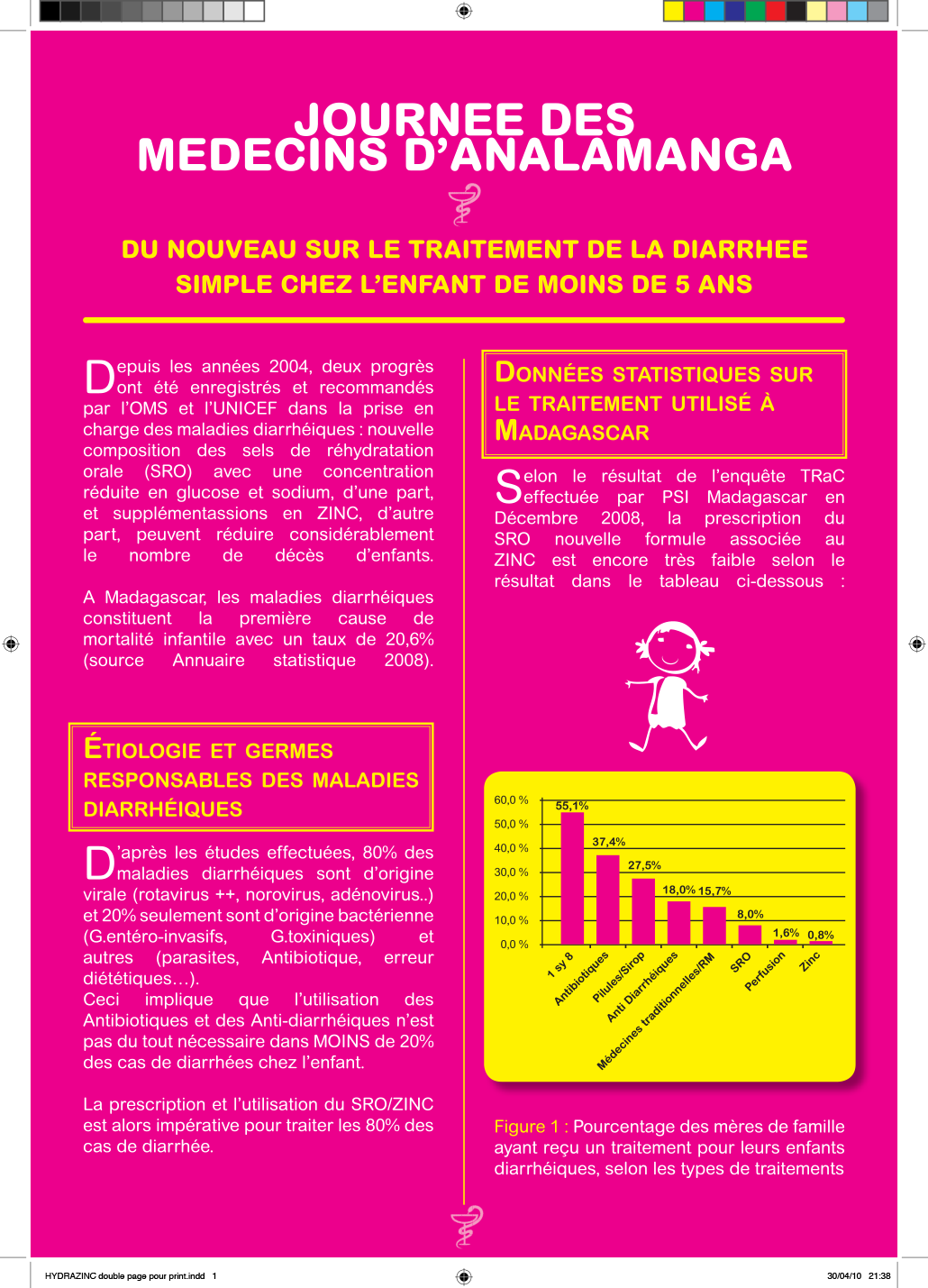
Resource Library
Madagascar Zinc Case Study
This document is part of a series of fourteen case studies in eleven countries that have tried to scale up ORS and zinc. These case studies document both successful and unsuccesful programs and contribute to our understanding of efforts to deliver proven interventions for childhood diarrhea. They are relevant to the community of international agencies, policy makers, researchers, and donors. Countries included in the series are: Bangladesh, Guyana, India, Jordan, Madagascar, Malawi, Nepal, Senegal, Sierra Leone, Tanzania, and Trinidad and Tobago. In some cases a country may have two case studies, one on ORS and one on zinc.
Resource Type :
Country : Madagascar
Year : 2013-01-09T00:00:00
Language :
Project : SHOPS

Resource Library
Follow the mMoney
This presentation gives a brief overview of the concept of mobile money. It uses two examples from Kenya and Madagascar to illustrate how mobile money can be integrated into health programming. This presentation was given at the Global Health Mini-University hosted by USAID and George Washington University's Center for Global Health in September 2012.
Resource Type : Presentation
Country : Kenya, Madagascar
Year : 2012-09-14T00:00:00
Language : English
Project : SHOPS

Resource Library
Improving family planning access in Madagascar for excluded populations through the private sector
Dr. Odile Hanitriniaina discusses the SHOPS project's objectives in Madagascar to raise the demand for reproductive serivces among the most underserved populations by strengthening the private sector in combination with the utilization of vouchers to overcome financial barriers. Dr. Hanitrinianina is a National Research Manager at Maris Stopes Madagascar. Download a PDF of the presentation by clicking on the download button, or view a recording of the presentation. (This presentation is available in French only)
Resource Type : Presentation
Country : Madagascar
Year : 2012-05-08T00:00:00
Language : French
Project : SHOPS

Resource Library
Using Mobile Finance to Reimburse Sexual and Reproductive Health Vouchers in Madagascar
This case study examines a voucher reimbursement program pioneered by Marie Stopes Madagascar (MSM). MSM set up a subsidized voucher program to increase poor people’s access to voluntary family planning services. Instead of traditional payment methods, MSM experimented with reimbursement via mobile phone. The program demonstrated that SMS money transfer systems can successfully reimburse health service providers in remote, rural and urban settings. Furthermore, the program illustrated that in some settings SMS systems can cut down on the time, cost, and possibility of fraud associated with cash reimbursement. The case study includes programmatic lessons to help organizations and program managers to replicate this model of reimbursement.
Resource Type : Report
Country : Madagascar
Year : 2011-12-06T00:00:00
Language : English
Project : SHOPS

Resource Library
Working through Community-based Channels to Introduce Zinc for Treatment of Pediatric Diarrheas
The presentation reviews field programs designed to increase the availability of zinc treatments for persistent childhood diarrhea in Benin and Madagascar. Diarrhea is responsible for 15% of deaths in children under the age of five worldwide, and zinc has been clinically proven to reduce the duration of persistent diarrhea. The field programs sought to work with the public and private sectors to increase the supply of zinc products as well as educate consumers and providers via variety of channels. The presentation reported lessons learned from their various interventions, including that community sources are often sought for advice about diarrhea treatment, and therefore, partnerships with such organizations can increase awareness and access to products and encourage correct zinc and oral rehydration salt use. This presentation was given at the American Public Health Association conference in 2011.
Resource Type : Presentation
Country : Benin, Madagascar
Year : 2011-11-15T14:00:00
Language : English
Project : SHOPS

Resource Library
Inappropriate Pediatric Diarrhea Treatment: Challenges in Nepal, Benin, and Madagascar
A panel presentation by Kathryn Kohler Banke of the SHOPS project for the Global Health Council conference 2011.
Resource Type : Presentation
Country : Benin
Year : 2011-06-27T00:00:00
Language : English
Project : SHOPS

Resource Library
Results and Lessons Learned from Household Surveys in Nepal, Benin, Madagascar, and Pakistan
Integrating Zinc into Diarrhea Management e-Conference Panel 2 presentation by Kathryn Kohler Banke, Abt Associates.
Resource Type : Presentation
Country : Benin, Madagascar, Nepal, Pakistan
Year : 2011-06-01T00:00:00
Language : English
Project : SHOPS

Resource Library
Social Marketing Plus for Diarrheal Disease Control: Point-of-Use Water Disinfection and Zinc Treatment (POUZN) Project
The Social Marketing Plus for Diarrheal Disease Control: Point-of-Use Water Disinfection and Zinc Treatment (POUZN) Project is a $12 million project funded by USAID that was designed to expand access to and use of point-of-use (POU) water disinfection and zinc products for the prevention and treatment of diarrhea through private sector channels. The POUZN project was implemented from October 2005 through November 2010 by Abt Associates Inc. in collaboration with Population Services International (PSI). Over the life of the project, it worked in 13 countries. A full POU program was carried out in six countries (Benin, Democratic Republic of the Congo (DRC), Haiti, Kenya, Malawi, and Rwanda), full zinc promotion programs were carried out in four countries (Benin, Madagascar, Nepal, and Pakistan), and technical assistance was provided in four additional countries (Angola, Bangladesh, Cambodia, and Senegal).
Resource Type : Report
Country : Bangladesh, Benin, Cambodia, Democratic Republic of Congo, Haiti, Kenya, Madagascar, Malawi, Nepal, Pakistan, Rwanda, Senegal
Year : 2011-06-10T00:00:00
Language : English
Project : SHOPS

Resource Library
Zinc detailing card - Madagascar
A detailing card contributed as a resource for the SHOPS Zinc e-Conference held on June 1-2, 2011.
Resource Type : Brochure/Postcard
Country : Madagascar
Year : 2011-06-01T00:00:00
Language : English
Project : SHOPS

Resource Library
Zinc Detailing Materials - Madagascar
A brochure contributed as a resource for the SHOPS Zinc e-Conference held on June 1-2, 2011.
Resource Type : Brochure/Postcard
Country : Madagascar
Year : 2011-06-01T00:00:00
Language : French
Project : SHOPS
Pagination
- Previous page
- Page 5
- Next page



